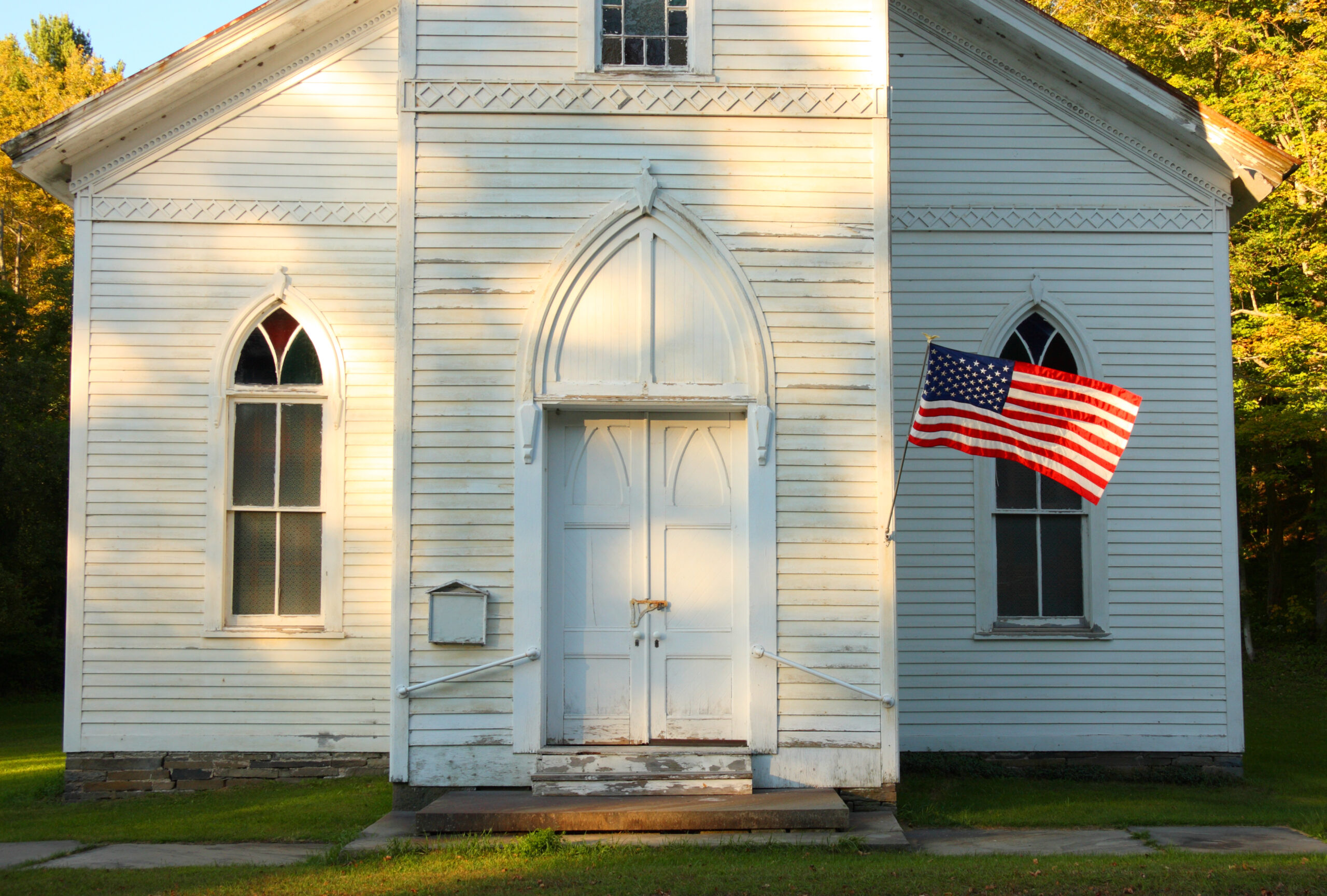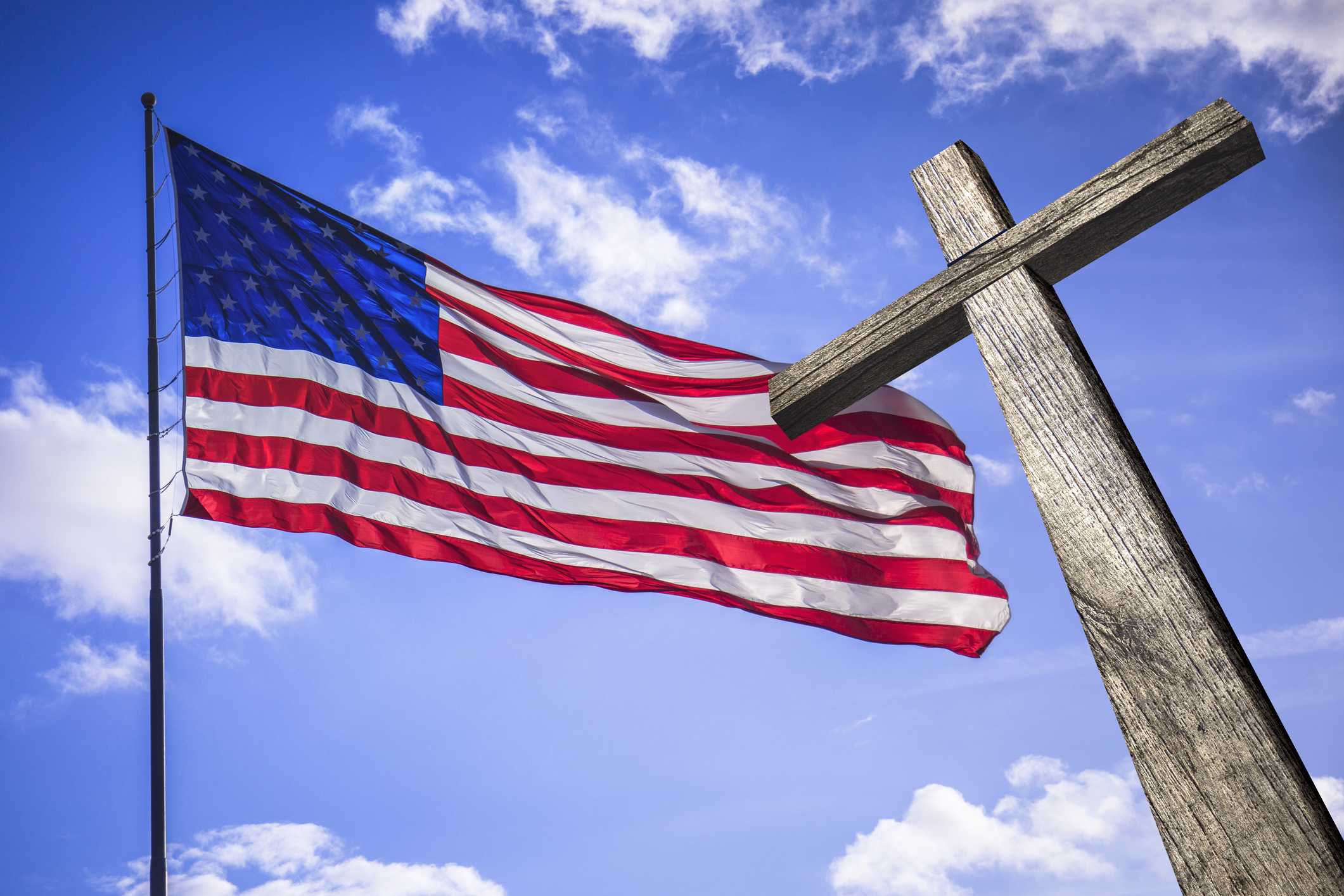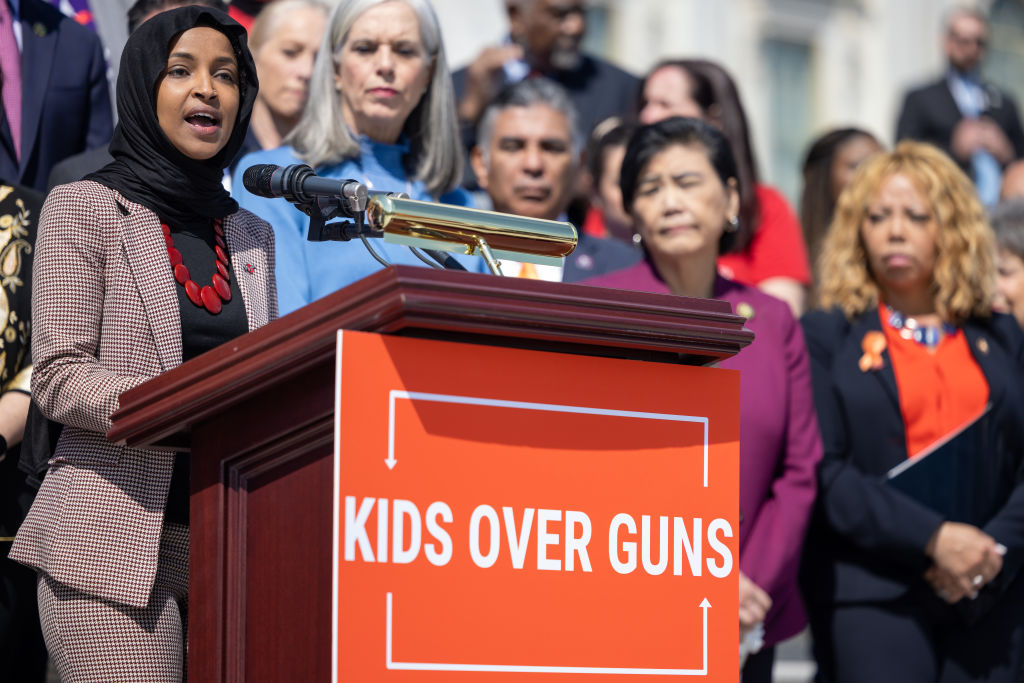Society won’t survive unless we put the guard rails back up.
The Integralist Upshot

Christians must reclaim a robust understanding of Christianity’s role in public life.
In our liberal and pluralistic polity, Christians are told that we cannot “impose” our beliefs upon others in the public square. Attend church, lead a Christian life, and hope you can be a light to the world and draw others to Christ—these are the only actions Christians can take to propagate the Gospel. Any practicing Christian senses that something in this modus vivendi is amiss. And yet we still harbor the hope that being the “salt of the earth” or the light uncovered from the “bushel basket” is enough to maintain any semblance of being a Christian nation.
But what if Christians living in a nation that’s part of a postwar West defined by liberalism’s secularist-favoring rules of (public) engagement are expecting too much from our churches? What if churches alone, and even families, are not—and historically never have been—the exclusive conduits through which Christianity gets passed from one generation to the next? What if Christianity’s “culture wars” with secular elites should not be understood as a series battles but a simulacrum of chance—less a Verdun or Antietam than a roll of the dice in a Vegas casino, where the house always wins?
If one key insight has emerged from America’s religious Right—Protestant and Catholic alike—in the (post)Trump era, it is this: Christians operating within the liberal paradigm of private religion and spurious public “neutrality” have accepted the terms of battle dictated to us by liberalism—we have, in effect, already conceded defeat.
In his book The Case for Christian Nationalism, Stephen Wolfe argues that both society—what he calls “cultural Christianity”—and even the government historically have promoted Christianity, laying the groundwork or “preparative” framework by which subjects of national political communities are guided to God, although not coerced to believe. As Wolfe succinctly argues:
[Ministers] lack the means to accomplish what only society can achieve. We expect far too much from of pastors and the pastoral office. The church can and should admonish you to conduct certain extra-ecclesial practices and explain why you should do them, but society is, by its nature, most effective at the ensuring that the people’s heart owns it [emphasis in original]. Neglecting culture and the cultural mode of religion upsets the natural order of things and increases the challenges and burden of spiritual ministry (and the family). The combined efforts of ecclesiastical, civil, familial, and social forces—each having a unique species of power—provide the complete conditions that order Christians to perform good Christian practices and encourage them to embrace the Gospel unto eternal life.
Despite what we are told by Stockholm syndrome Christians enamored of their captors, Christianity in the West has not historically operated in a hermetically-sealed private vacuum. Going to church for an hour one day a week was never meant to be the sole means to counter a six-day bombardment of aggressive secularism streaming endlessly from government, educational institutions, the media, and even private corporations. As Wolfe demonstrates, even the pagans of antiquity—whom modern liberals lionize as the proto-secularist heroes of liberal modernity—argued that “civil authority ought to direct man to true religion.” Thus the idea that “civil government ought also to direct its people to the highest good within the limits of its power” [emphasis mine] is an axiom underpinning Western civilization, not the innovation of would-be theocrats taking their cues from the Iranian Ayatollah.
The National Conservatism statement of principles makes a similar claim to the indispensability of an energized public Christianity:
For millennia, the Bible has been our surest guide, nourishing a fitting orientation toward God, to the political traditions of the nation, to public morals, to the defense of the weak, and to the recognition of things rightly regarded as sacred. The Bible should be read as the first among the sources of a shared Western civilization in schools and universities, and as the rightful inheritance of believers and non-believers alike.
Biblical illiteracy concerns “believers and non-believers alike,” because the Western political tradition is inextricable from Christianity. As the signatories of the statement make clear, to neglect or even forsake “public religion” is to forsake the nation’s moral and political life.
Explicitly “integralist” texts, or what Adrian Vermeule has called “political Catholicism,” do not differ from self-identified “National Conservatives” or “Christian Nationalists” on the key point that church attendance must be accompanied by robust societal or cultural Christianity, including the state’s encouragement of Christian worship vis-à-vis public institutions, Sabbath laws, the celebration of Christian holidays, and the like.
“It is incorrect to claim,” Catholic integralists Thomas Crean and Alan Fimister assert, “that political authority exists principally to secure for each person the greatest possible exercise of liberty compatible with the liberty of others.” Rather, Aristotle teaches that man’s good and proper ends, his telos, are reached by means of “the activity of the soul according to virtue.” Judeo-Christian revelation in turn tells us that man’s virtue is only fully achieved by the honoring and worship of God; therefore even temporal or secular authority is ultimately subordinate to the divine:
[T]he end to which the temporal ruler directs the multitude can only be correctly pursued when it is subordinated to the higher goal which is eternal life…[and therefore] without submitting to an authority based on revelation, the temporal power cannot know in what this good concretely consist[s]” [emphasis mine].
None of this means, as Wolfe, Crean, Fimister, and others at the vanguard of the new religious Right attest, that religious conversion can be compelled by an act of force or that religious (or areligious) minorities cannot practice their own beliefs. Rather, it means in the Christian West that orienting government, culture, and society at large toward Christianity has been the historical norm. The hamstringing of public Christianity, then, is an aberration, not the norm.
What all this means for practicing Christians is that since at least the 1950s, when the U.S. Supreme Court banned prayer and Bible study in public schools, we have been snookered. We have been made to believe that churches and families (and in some cases parochial schools and universities) alone are the only legitimate vessels of Christian expression.
By the grace of God, the nascent pan-Christian consensus—the ecumenical Christian integralist upshot, if you will—is that churches alone are not enough to Christianize the West, because they never have been.
As Christians awaken to the mountains of evidence of the historical prominence of Christianity in the political and cultural life of their nations, I say this: Free yourself. You have nothing to lose but your chains.
The American Mind presents a range of perspectives. Views are writers’ own and do not necessarily represent those of The Claremont Institute.
The American Mind is a publication of the Claremont Institute, a non-profit 501(c)(3) organization, dedicated to restoring the principles of the American Founding to their rightful, preeminent authority in our national life. Interested in supporting our work? Gifts to the Claremont Institute are tax-deductible.
The Left’s latest cudgel against religious conservatives.
The unceasing woes of East Africa.
Rejecting organized religion doesn't mean rejecting religion itself.
The latest atrocity in American public life could serve as a turning point.
Without Christ, Christianity becomes just another scapegoat ritual.






